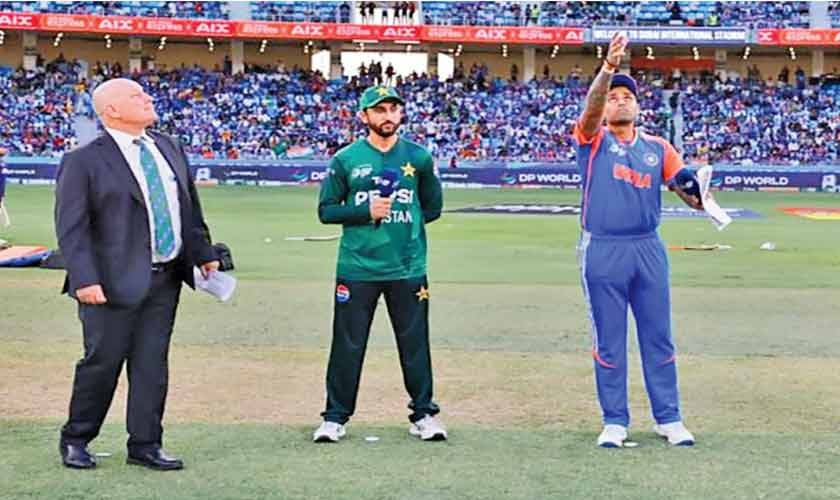**Cricket and the Spirit of the Game: A Call for Fairness and Unity**
Cricket is often referred to as the game of gentlemen because of its core values of fairness, respect, and sportsmanship. The sport emphasises integrity, honour, and discipline both on and off the field. However, recent events in international cricket have raised concerns about whether these values are being consistently upheld.
—
### The Asia Cup Controversy: Pakistan vs India
Last week’s high-voltage Asia Cup encounter between Pakistan and India ended on a sour note. After India’s convincing victory, the Men in Blue walked straight into their dressing room, skipping the customary handshake with their Pakistani opponents. Moreover, the Indian team closed the dressing room door upon their return, avoiding any post-match interaction.
While shaking hands after a match is widely considered a gesture of sportsmanship, it is important to note that the International Cricket Council (ICC) does not mandate this act. The ICC’s Code of Conduct does not contain specific provisions for penalising teams or players who intentionally skip post-match handshakes.
—
### The PCB’s Complaint and Referee Controversy
In response, the Pakistan Cricket Board (PCB) lodged a formal complaint with the ICC against match referee Andy Pycroft. The PCB alleged that Pycroft violated rules pertaining to the Spirit of Cricket by instructing both teams’ captains not to shake hands at the toss. According to reports, Pycroft communicated this directive first to Pakistan captain Salman Agha, who then relayed it to India captain Suryakumar Yadav.
The PCB claims that these actions undermined the spirit of the game and breached established protocols. Moreover, the board believes the instructions were influenced by the Board of Control for Cricket in India (BCCI) after consultation with the Indian government. Consequently, the PCB has demanded the immediate removal of Pycroft from the Asia Cup.
—
### Indian Players’ Standpoint and Political Overtones
India’s team and staff also chose not to shake hands post-match. Captain Suryakumar Yadav confirmed that this decision aligned with guidance from the BCCI and the Indian government, stating, “We stand with the BCCI and the government. Some things in life are more important than sportsmanship.”
Experts, however, suggest that instead of lodging complaints about the lack of handshakes, the PCB should have addressed Yadav’s press conference in which he dedicated India’s victory to the Indian armed forces—a move viewed as politicising the sport.
—
### Resolution and Historical Context
Before Pakistan’s decisive game against the UAE, Zimbabwean referee Andy Pycroft apologised to the Pakistan team’s manager and captain, aiming to resolve the controversy.
Pycroft’s track record with Pakistan has not been smooth. He was the match referee when Pakistan players Mohammad Hafeez and Saeed Ajmal were reported for suspected illegal bowling actions in notable matches.
—
### The ICC’s Role and Accusations of Bias
The International Cricket Council (ICC) is the global governing body of cricket, intended to ensure fair play and equitable governance among member boards. However, many fans and critics sarcastically refer to it as the “Indian Cricket Council,” highlighting India’s immense influence in world cricket.
The BCCI, being the wealthiest and most powerful cricket board, wields significant financial influence over the ICC’s decision-making. This perception of undue dominance has posed challenges to the sport’s neutrality.
—
### Political Statements and ICC’s Enforcement
Political statements and actions during international cricket matches have often been met with ICC sanctions. A few notable instances include:
– In 2014, England’s Moeen Ali was banned from wearing wristbands with political slogans (“Save Gaza” and “Free Palestine”) during internationals, as per ICC’s Equipment and Clothing Regulations.
– South African spinner Imran Tahir was warned for revealing a t-shirt bearing a religious message during a T20I in 2017.
– Australian opener Usman Khawaja was reprimanded in 2023 for wearing a black armband and attempting to wear shoes with political messages.
Notably, no Indian player or official has faced similar restrictions or sanctions for political expressions, raising questions about consistent application of the ICC’s Code of Conduct.
—
### Calls for Fairness, Transparency, and Unity
Cricket should remain free of politics, with fairness, transparency, and accountability upheld across the entire cricketing community. No individual, team, or national board should be considered above the law or receive undue preference.
The integrity of cricket depends on equal treatment and strict adherence to universally applied rules and standards.
—
### Moving Forward: A Collective Responsibility
It is now a critical moment for cricket boards worldwide to unite and urge the ICC to establish and enforce a consistent, uniform policy applicable equally to all member boards.
Only through collective action and commitment to the spirit of cricket can the sport maintain its reputation as the game of gentlemen—promoting harmony, respect, and genuine sportsmanship across nations.
—
*By fostering a fair and transparent cricketing environment, the ICC can restore trust among players, officials, and fans alike, preserving the true spirit of the game for generations to come.*
https://www.thenews.com.pk/tns/detail/1345095-ensuring-cricket-remains-politically-neutral


